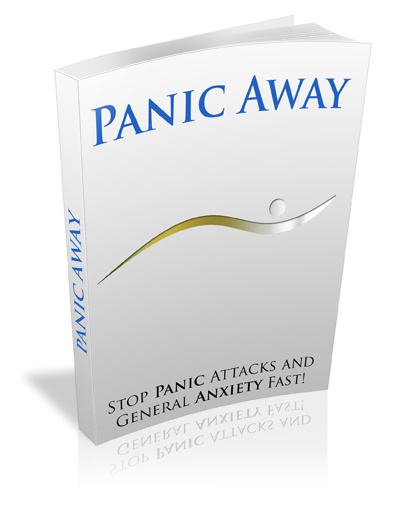Have you ever found solace in a song? In those moments when the melody wraps around you, the lyrics speak directly to your soul, and the rhythm carries away your worries, music has a remarkable way of touching our hearts and easing our minds. It's a powerful force that can transport us to another world, a place free from the weight of anxiety. I know because I've experienced it firsthand.
There was a time in my life when anxiety consumed me. Each day felt like a battle against my racing thoughts and relentless worries. But then, I discovered the extraordinary power of music therapy. Through the guidance of a music therapist, I embarked on a transformative journey that helped me find relief, regain control, and discover inner peace.
Our Top Pick For Beating Panic Attacks

Stopping, and preventing, panic attacks is now even easier.
If you're seeking anxiety relief and are curious about the healing potential of music therapy, you've come to the right place. In this article, I will share with you three practical steps to start music therapy for anxiety and experience its incredible benefits. Let's embark on this journey together, shall we?
Key Takeaways:
- Music has the power to touch our hearts and ease our minds, offering solace and relief from anxiety.
- Music therapy is a transformative journey that can help individuals find relief, regain control, and discover inner peace.
- This article will provide three practical steps to start music therapy for anxiety and experience its incredible benefits.
The Impact of Music on Anxiety
Music therapy can be a powerful tool for anxiety relief, offering various benefits that help individuals manage their symptoms and promote overall well-being. Understanding the impact of music on anxiety can provide insight into why music therapy is an effective approach.
One way music therapy helps with anxiety treatment is by providing a distraction. Engaging with music shifts the brain's focus away from anxious thoughts, allowing individuals to experience a sense of relief and relaxation.
Additionally, music has the ability to suppress the sympathetic nervous system, which is responsible for the “fight or flight” response associated with anxiety. Soothing music and rhythms can lower heart rate, reduce muscle tension, and slow down the breathing rate, creating a calming effect on the body.
Another benefit of music therapy for anxiety is its power to encourage expression. Music therapy involves both listening to and creating music, providing individuals with a platform to express their emotions and thoughts. This creative outlet promotes self-expression and can improve communication, helping individuals better understand and manage their anxiety.
Choosing the Best Music for Anxiety Relief
The best music for anxiety relief varies from person to person, as preferences and responses to different types of music differ. However, some general guidelines can help guide the selection of music for anxiety treatment.
“Music therapy can be a powerful tool for anxiety relief, offering various benefits that help individuals manage their symptoms and promote overall well-being.”
Soothing and calming music, such as classical, instrumental, or nature sounds, tend to be effective choices for anxiety relief. These types of music often have slower tempos, gentle melodies, and minimal lyrics, allowing the mind to relax and unwind.
Moreover, music that evokes positive emotions can significantly reduce stress and anxiety. Upbeat and uplifting music genres like pop, jazz, or folk can stimulate the release of endorphins, dopamine, and other “feel-good” neurotransmitters, counteracting the negative effects of anxiety.
Ultimately, the best music for anxiety relief is personal to each individual, so it's essential to explore different genres and experiment to find what resonates best with you. The goal is to discover music that promotes relaxation, eases worry, and instills a sense of peace and tranquility.
Exploring the impact of music on anxiety can deepen our understanding of the therapeutic potential of music therapy. By harnessing the power of music, individuals can experience relief from anxiety symptoms and embark on a journey towards improved mental well-being.
What is Music Therapy?
Music therapy is a form of therapy that harnesses the power of music to help individuals in various ways, including communication, processing difficult experiences, and improving motor or cognitive functioning. It utilizes interactive music-making experiences, either through playing musical instruments or using the voice, to facilitate therapeutic outcomes.
Since the 1950s, music therapy has been recognized by the American Music Therapy Association as an effective and holistic approach to supporting individuals' well-being. It has gained popularity as a valuable resource for anxiety relief, providing individuals with tools and techniques to manage their anxiety symptoms.
Benefits of Music Therapy Sessions
Music therapy sessions for anxiety cater to the unique needs of individuals. These sessions offer a safe and non-judgmental space to explore emotions, reduce anxiety, and improve overall mental health. By engaging in music therapy, individuals can experience:
- Enhanced self-expression and communication skills
- Increased relaxation and stress reduction
- Improved emotional regulation and coping mechanisms
- Development of effective anxiety management strategies
- Strengthened social connections and sense of belonging
Resources for Music Therapy
When it comes to accessing music therapy resources for anxiety relief, there are several options available. Consider the following:
- Professional Music Therapists: Work with qualified and board-certified music therapists who can tailor sessions to meet specific needs. They possess the knowledge and expertise to guide individuals through their therapeutic journey and provide personalized support.
- Music Therapy Organizations: Explore organizations such as the American Music Therapy Association (AMTA) and local music therapy associations. They provide information, resources, and directories to help individuals find qualified music therapists.
- Online Music Therapy Platforms: Utilize online platforms that offer virtual music therapy sessions or provide guided music therapy resources. These platforms can be convenient for accessing therapy from the comfort of home.
Remember, finding the right music therapy resources for anxiety is essential for a successful therapeutic experience. The collaboration between individuals and music therapists can empower individuals to manage their anxiety and improve their overall well-being.

Using Music Therapeutically at Home
Music therapy is not limited to professional sessions; it can also be integrated into your daily life at home to enhance your mental well-being and find solace from anxiety. By understanding how to use music therapeutically, you can experience the many benefits it offers for anxiety relief.
One way to start music therapy at home is by creating personalized playlists that cater to your emotional needs and desired mood. Whether you're feeling stressed, anxious, or in need of relaxation, curating a collection of songs that resonate with you can be incredibly therapeutic. Consider the tempo, volume, harmony, timbre, and lyrics of the music as you craft your playlist, ensuring it aligns with your current state of mind.
Trusting your musical intuition is key. Fill your playlist with familiar songs that you enjoy and that evoke positive emotions. Familiarity can contribute to a sense of comfort and security, enhancing the therapeutic effects of the music. As you embark on your musical journey, let the melodies and rhythms guide you towards anxiety relief and emotional well-being.
If you're unsure of where to start or feel the need for additional guidance and support, it's beneficial to consult a board-certified music therapist. They can provide expert advice on selecting the most therapeutic music for your needs and guide you through the process of using music as a healing tool.
Benefits of Using Music Therapeutically at Home:
- Combat stress and anxiety
- Achieve relaxation and calm
- Increase motivation and productivity
- Evoke positive emotions
By incorporating music therapy into your daily routine, you can harness the power of music to support your mental health and find comfort in times of anxiety. Start exploring the incredible benefits that music therapy has to offer right in the comfort of your own home.
Music's Impact on the Brain
Music has a profound impact on the brain, activating it in its entirety and influencing our thoughts, behaviors, and emotions. The elements of music, such as pitch, tempo, and dynamics, interact to create different effects on the brain.
Listening to music can improve the way we think, behave, and feel. It has the power to uplift our spirits, evoke memories, and even transport us to different emotional states. When it comes to anxiety relief, music therapy harnesses these effects to promote mental well-being.
As Albert Einstein once said, “I see my life in terms of music…and my goal is to give clarity and beauty to those who listen.” Music has the ability to touch our souls and connect with our deepest emotions.
Scientific studies have documented the effects of music on the brain, validating its therapeutic potential. When listening to calming, slow-tempo music, the brain releases feel-good chemicals such as dopamine and endorphins, promoting relaxation and reducing anxiety. On the other hand, faster-paced music can energize and uplift our mood, providing a much-needed boost during stressful times.
The Role of Neuroplasticity
One of the fascinating aspects of music's impact on the brain is its ability to promote neuroplasticity, the brain's capacity to reorganize and form new neural connections. Through music, we can stimulate various regions of the brain, enhancing cognitive function, improving memory, and boosting overall mental health.
Research has shown that individuals who engage in music therapy for anxiety relief experience a reduction in symptoms related to stress, depression, and anxiety disorders. Music therapy sessions involve activities such as playing musical instruments, singing, and engaging in rhythmic movement, all of which activate different areas of the brain and promote emotional expression.
Music Therapy's Multisensory Approach
What sets music therapy apart from other forms of therapy is its multisensory approach. Music engages not only our auditory sense but also our visual, tactile, and even kinesthetic senses. This holistic approach creates a rich and immersive experience that enhances the therapeutic effects of music.
A music therapy session may involve listening to calming melodies, playing a musical instrument, or engaging in rhythmic movements synchronized with the beat. These activities stimulate multiple areas of the brain simultaneously, creating a harmonious and therapeutic environment for anxiety relief.
| Benefits of Music Therapy for Anxiety Relief |
|---|
| Reduces muscle tension |
| Decreases anxiety and agitation |
| Promotes relaxation and stress reduction |
| Enhances emotional expression and communication |
| Fosters a sense of control and empowerment |
| Improves overall mental well-being |
Music therapy offers a unique approach to anxiety relief by tapping into the power of music to heal and uplift. Its impact on the brain is both scientifically supported and personally transformative. By incorporating music therapy into your anxiety management routine, you can experience the mental health benefits of music therapy firsthand.

Join me in the final section of this article as we explore the role of a music therapist and the importance of integrating music therapy into a holistic approach for anxiety treatment.
The Role of a Music Therapist
A music therapist plays a crucial role in providing effective and personalized music therapy sessions for anxiety relief. With their extensive training and expertise, music therapists have the knowledge to select or compose music that is tailored to meet individual physiological and psychological needs.
Music therapists are skilled in utilizing the therapeutic properties of music to assist individuals in achieving their desired therapeutic goals. They understand the profound impact that music can have on emotions, thoughts, and behaviors, and they apply this understanding to promote anxiety relief and overall mental well-being.
While starting music therapy at home can be beneficial, consulting a music therapist offers several advantages. A music therapist can provide a comprehensive assessment of one's anxiety symptoms and create a customized treatment plan that addresses specific needs. They can guide individuals through therapeutic techniques and exercises that are most effective for anxiety relief.
Music therapists not only provide expertise and guidance but also offer emotional support throughout the therapeutic journey. They create a safe and nurturing environment where individuals can express their emotions and process their experiences effectively. With the help of a music therapist, individuals can embark on a transformative journey towards anxiety relief.
| The Benefits of Consulting a Music Therapist for Anxiety Treatment |
|---|
| 1. Personalized approach: Music therapists tailor treatment plans to meet individual needs, ensuring the most effective therapeutic experience. |
| 2. Expertise and knowledge: Music therapists possess specialized training and qualifications, allowing them to utilize evidence-based techniques for anxiety relief. |
| 3. Emotional support: Music therapists create a safe and supportive space for individuals to express their emotions and navigate their anxiety symptoms. |
| 4. Comprehensive assessment: Music therapists conduct thorough assessments to understand the severity and impact of anxiety, enabling the development of targeted treatment strategies. |
| 5. Continuity of care: Working with a music therapist ensures ongoing support and guidance, facilitating the progress of anxiety treatment. |
Integrating Music Therapy into a Holistic Approach
Music therapy is a powerful tool for anxiety relief, offering numerous benefits that contribute to overall mental well-being. However, it is important to integrate music therapy into a holistic approach that encompasses various aspects of life.
While music therapy can reduce anxiety and promote relaxation, it is crucial to recognize that managing stress levels requires a comprehensive approach that goes beyond music alone. Factors such as diet, exercise, and sleep play significant roles in our mental health and should be prioritized alongside music therapy.
Engaging in activities like yoga and meditation can be complementary to the benefits of music therapy. These practices can further calm the mind, reduce stress, and promote a sense of well-being. By incorporating these practices into a holistic approach, individuals can maximize the effectiveness of music therapy for anxiety relief.
Benefits of Integrating Music Therapy with Holistic Approaches
- Enhanced stress management: Combining music therapy with other holistic practices can create a comprehensive stress management plan, leading to more effective anxiety relief.
- Improved overall well-being: A holistic approach to anxiety treatment can address various aspects of life, promoting overall mental health and well-being.
- Support for multiple dimensions: By integrating music therapy with other practices, individuals can address the physical, emotional, and spiritual dimensions of anxiety.
When incorporating music therapy into a holistic approach, it is essential to have a well-rounded understanding of one's own needs and seek guidance from professionals such as music therapists, holistic health practitioners, and mental health experts. Together, they can provide personalized strategies and support that align with individual goals and preferences.
Remember, choosing a holistic approach to anxiety treatment means embracing a complete lifestyle change that allows for optimal well-being. By integrating music therapy with other holistic practices, individuals can experience the full benefits of anxiety relief and embark on a transformative journey toward improved mental health and overall happiness.

The Healing Power of Music
Music has a healing power that is both magical and scientifically supported. It has the ability to impact our brains, bodies, and emotions. Whether it's through listening to music or actively engaging in music therapy, the effects can be remarkable.
Music therapy taps into this power to provide anxiety relief and promote mental well-being. The ability of music to evoke emotions, stimulate memories, and provide comfort makes it a valuable tool in managing anxiety symptoms.

Listening to calming and soothing tunes can create a sense of tranquility and help alleviate feelings of anxiety. The rhythmic patterns and melodies in music have a direct impact on our nervous system, helping us relax and reduce stress.
Music therapy for anxiety utilizes carefully selected musical compositions and techniques to create a therapeutic environment that fosters relaxation and emotional healing. It provides individuals with a safe and supportive space to express their emotions and find solace in the power of music.
Music has the power to take us to places we have never been before, to touch our souls, and bring us comfort and healing. It speaks to us on a deeper level, transcending language and connecting us to our innermost selves.
During music therapy sessions, qualified and experienced music therapists guide individuals through a range of activities that promote anxiety relief. These may include guided imagery exercises, playing musical instruments, singing, and improvisation.
The Benefits of Music Therapy for Anxiety Relief
Music therapy for anxiety offers numerous benefits that contribute to overall well-being. It can reduce muscle tension, which often accompanies anxiety, providing physical relaxation. It also decreases anxiety and agitation, promoting a sense of calmness and tranquility.
The therapeutic techniques used in music therapy sessions, such as drumming, active listening, visualization with background music, and breathing exercises, are effective tools for managing anxiety symptoms.
- Drumming: Playing drums can help release tension and increase focus, diverting attention away from anxious thoughts.
- Active Listening: Actively engaging with music and focusing on its various elements can shift the focus away from anxiety and promote relaxation.
- Visualization with Background Music: Combining visualization exercises with soothing music enhances the relaxation response and aids in anxiety relief.
- Breathing Exercises: Incorporating deep breathing exercises while listening to calming music helps regulate and slow down the breathing, promoting relaxation and reducing anxiety.
Music therapy sessions can be tailored to individual needs and completed in a short-term series. The comprehensive approach of music therapy addresses the emotional, physical, and psychological aspects of anxiety, providing a holistic approach to anxiety relief.
Captivated by the power of music, I have witnessed its transformative effects firsthand. The soothing melodies and harmonies, combined with the therapeutic guidance of a music therapist, create an environment that promotes healing and well-being.
Benefits of Music Therapy for Anxiety Relief
Music therapy offers numerous benefits for anxiety relief. It is a powerful tool that can reduce muscle tension, decrease anxiety and agitation, and support the safe release of emotions. Through a variety of music therapy techniques, individuals can effectively manage their anxiety symptoms and find solace in the healing power of music.
Reducing Muscle Tension
Listening to calming music can have a soothing effect on the body, reducing muscle tension and promoting relaxation. As the music resonates within us, it can help release the tightness and physical discomfort associated with anxiety, allowing for a sense of ease and relief.
Decreasing Anxiety and Agitation
Anxiety can lead to restlessness, nervousness, and a heightened state of arousal. Music therapy provides a distraction and shifts the focus away from anxious thoughts, creating a calming and peaceful environment. By engaging with music, individuals can experience a sense of tranquility and a reduction in anxiety and agitation.
Supporting the Safe Release of Emotions
Expressing emotions is an important aspect of anxiety treatment, and music therapy offers a safe and supportive space to do so. Through drumming, active listening, and other music therapy techniques, individuals can explore and communicate their emotions, promoting emotional well-being and enhancing their ability to cope with anxiety.
Music therapy sessions can be tailored to individual needs and completed in a short-term series, offering flexibility and customization. By harnessing the power of music, individuals can tap into the mental health benefits of music therapy and find relief from anxiety symptoms.

Conclusion
Starting music therapy for anxiety relief is a practical and empowering approach to incorporate music into your life. Whether you choose to attend music therapy sessions with a trained professional or create therapeutic playlists at home, music can be a valuable tool for managing anxiety. By embracing music as a therapeutic tool, individuals can embark on a journey of anxiety relief and find serenity through the transformative power of music.
Music therapy combines the healing power of music with clinical applications to address individual needs. It offers a personalized approach to anxiety treatment, providing techniques and strategies tailored to your unique experience. From drumming and active listening to visualization with background music and breathing exercises, music therapy offers a diverse range of tools to effectively manage anxiety symptoms.
Moreover, starting music therapy at home allows you to integrate the benefits of music into your daily life. Creating therapeutic playlists that match your current emotional state and desired mood can help combat stress, achieve relaxation, increase motivation, and evoke positive emotions. By tapping into your musical intuition and considering various elements such as tempo, volume, harmony, timbre, and lyrics, you can create a personalized therapeutic playlist that promotes anxiety relief.
Whether you choose to seek professional guidance or embrace music therapy at home, starting music therapy for anxiety can lead to profound emotional well-being and mental health benefits. Through the power of music, you have the opportunity to manage your anxiety symptoms, express your emotions, and find solace in the harmonies that resonate within you.
FAQ
How do I start music therapy for anxiety relief?
To start music therapy for anxiety relief, you can consider the following steps: 1) Consult a board-certified music therapist for guidance and support. 2) Incorporate music into your daily life by creating a personalized therapeutic playlist that matches your emotional state and desired mood. 3) Explore interactive music-making experiences, such as playing musical instruments or singing, either individually or with a therapist.
What impact does music have on anxiety?
Music can have a significant impact on anxiety by providing a distraction, suppressing the sympathetic nervous system, and encouraging expression. Soothing music and rhythms can shift the brain's focus away from anxiety, while the release of endorphins and dopamine through music can help suppress the fight or flight response associated with anxiety.
What is music therapy?
Music therapy is a form of therapy that uses music to help individuals communicate, process difficult experiences, and improve motor or cognitive functioning. It involves interactive music-making experiences using musical instruments or the voice, guided by a trained music therapist. Music therapy resources are available to provide anxiety relief and support individuals in managing their anxiety symptoms.
How can I use music therapeutically at home?
You can use music therapeutically at home by creating a therapeutic playlist that matches your emotional state and desired mood. Consider the tempo, volume, harmony, timbre, and lyrics of the music to create a personalized experience. Additionally, engaging in activities like drumming, active listening, visualization with background music, and breathing exercises can effectively manage anxiety symptoms.
What impact does music have on the brain?
Music has a profound impact on the brain, activating it in its entirety and influencing our thoughts, behaviors, and emotions. Listening to music can improve the way we think, behave, and feel. Scientific studies have documented the effects of music on the brain, validating its therapeutic potential for anxiety relief and promoting mental well-being.
What is the role of a music therapist in anxiety treatment?
A music therapist is trained to provide clinical applications of music that are tailored to individual needs. They can choose or compose music that meets physiological and psychological needs for anxiety relief and guide individuals in achieving their desired therapeutic goals. While starting music therapy at home can be beneficial, consulting a music therapist can provide a more comprehensive and personalized approach to anxiety treatment.
How can music therapy be integrated into a holistic approach?
Music therapy is a powerful tool for anxiety relief, but it should be integrated into a holistic approach to mental health. Activities like yoga, meditation, proper diet, exercise, and quality sleep also play a role in managing stress levels. Prioritizing overall health and well-being will enhance the benefits of music therapy in effectively managing anxiety.
What is the healing power of music?
Music has a healing power that is both magical and scientifically supported. It has the ability to impact our brains, bodies, and emotions. The ability of music to evoke emotions, stimulate memories, and provide comfort makes it a valuable tool in managing anxiety symptoms. By embracing music as a therapeutic tool, individuals can find serenity and anxiety relief through the transformative power of music.
What are the benefits of music therapy for anxiety relief?
Music therapy offers numerous benefits for anxiety relief. It can reduce muscle tension, decrease anxiety and agitation, and support the safe release of emotions. Music therapy techniques, such as drumming, active listening, visualization with background music, and breathing exercises, can effectively manage anxiety symptoms. The mental health benefits of music therapy extend beyond anxiety relief, enhancing overall well-being and promoting emotional expression.
How can I start music therapy for anxiety at home?
To start music therapy for anxiety at home, consider incorporating music into your daily life by creating therapeutic playlists and engaging in activities like drumming, active listening, visualization, and breathing exercises. Trust your musical intuition, but consulting a board-certified music therapist can provide additional guidance and support for a personalized approach.



